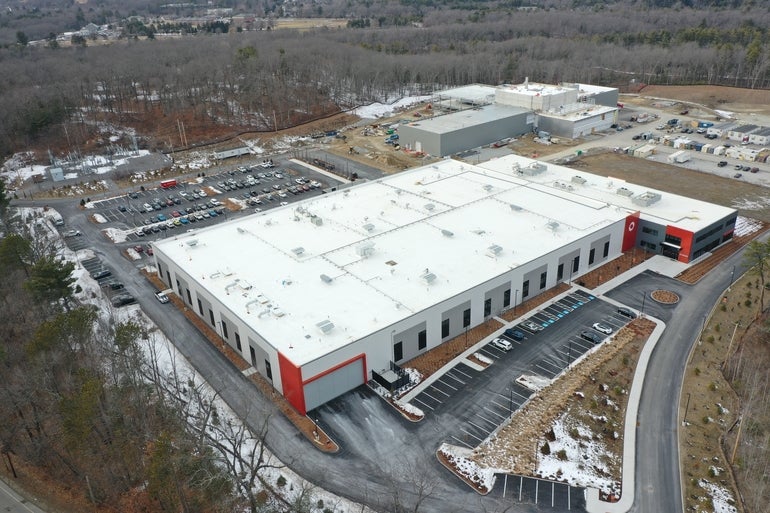Commonwealth Fusion Systems, the Devens-based company striving to bring online the world’s first commercially-relevant net energy fusion machine, has received state approval to process, use, and store radioactive materials at its site.
The company said receiving this state approval is a vital step towards its effort to launch its elusive-yet-promising energy fusion machine, a technology with the potential to create abundant energy without producing carbon.
“Fusion energy is critical to tackling climate change and meeting the growing demand for electricity,” Corinne Mitchell, director of radiation protection at CFS, said in a Thursday release announcing the approval. “But along with solving fusion’s technical challenges, we also have to show we can satisfy regulators’ safety requirements that protect employees, the public, and the environment. This license from Massachusetts proves we can do that.”
CFS first opened its Devens facility in February 2023, five years after the company was spun out of the Massachusetts Institute of Technology. It has raised $2 billion from investors, including Microsoft Co-founder Bill Gates.
The company expects to produce its first plasma in 2026, with its SPARC fusion machine producing net energy shortly after that. CFS hopes to deliver power to the grid by 2030.
Nuclear fusion, the same source of energy powering the Sun and other stars, utilizes energy from the leftover mass created when two light nuclei are merged into a singular heavier nucleus.
The technology is widely considered to be much safer than nuclear fission power plants, where out-of-control chain reactions have caused nuclear meltdowns at facilities in the former Soviet Union and Japan. It is nearly impossible for fusion technology to cause the same problem, as such a chain reaction in a fusion facility would require temperatures and other factors not found on Earth, according to the International Atomic Energy Agency.
Fusion technology does not produce highly radioactive, long-lived nuclear waste like fission tech.
Academics have discussed the potential for fusion energy since at least the 1960s, but so far the technology has only been utilized in small-scale research conditions.
Eric Casey is a staff writer at Worcester Business Journal, who primarily covers the manufacturing and real estate industries.

